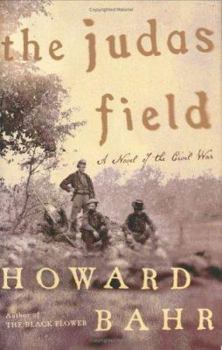The Judas Field: A Novel of the Civil War
(Part of the Novel of the Civil War Series)
Select Format
Select Condition 
Book Overview
Customer Reviews
Rated 5 starsThe Written War
Daniel Aaron, in The Unwritten War, lamented that the Civil War never produced a great work of fiction until, possibly, William Faulkner's works. If anyone ever updates that book, the author may come to a happier conclusion with the works of Howard Bahr. Lost in the clamor over Charles Frazier's Cold Mountain, Bahr's novel of the Battle of Franklin, The Black Flower--published the same year as Frazier's fine book--was a...
0Report
Rated 5 starsThe Civil War was more than just battles.
Magnificent! Mr. Bahr has written a wonderful, poignant, personal view of how the brutality of the Civil War affected those that lived it. War is the ultimate of human endeavors; those who have been embraced by it are changed forever. Brutality on a grand scale that brings into question the essence of the human condition. Mr. Bahr reaches into the very soul of those who have witnessed the carnage and examines how their...
0Report
Rated 5 starsSuperb
I have been a Howard Bahr fan since THE BLACK FLOWER, and now he has in this third novel written a fine portrayal of the burden of the Civil War on those who fought it and the ones who waited. Bahr is a master of description and his prose is poetic in its imagery. Anyone who thinks that war is noble must read Cass Wakefield's ever-present memories of the Battle of Franklin--his comrades who were blown to bits, the bloody...
0Report
Rated 5 starsBest new fiction I've read since "Gilead".
I had read Howard Bahr's "Black Flower" and "Year of Jubilo" and liked both. "The Judas Field", however is a literary leap. This is the story of Cass and Lucian Wakefield and their return to the site of the Battle of Franklin Tennessee twenty years after the fact to recover the remains of a friend's brother and father. Along the way Mr. Bahr tells the story of this and other engagements and the fate of several characters...
0Report
Rated 5 starsMarvelously written!
Not a necessarily a civil war buff, I had to be encouraged to read this book on its literary merit versus content. As a result,an absolutely beautifully written novel was discovered. The horrors and atrocities of the Civil War are well done but not necessarily for shock value. Bahr's character development and ability to portray the postwar southern landscape are superb. The last 100 pages have to be one of the best pieces...
0Report













